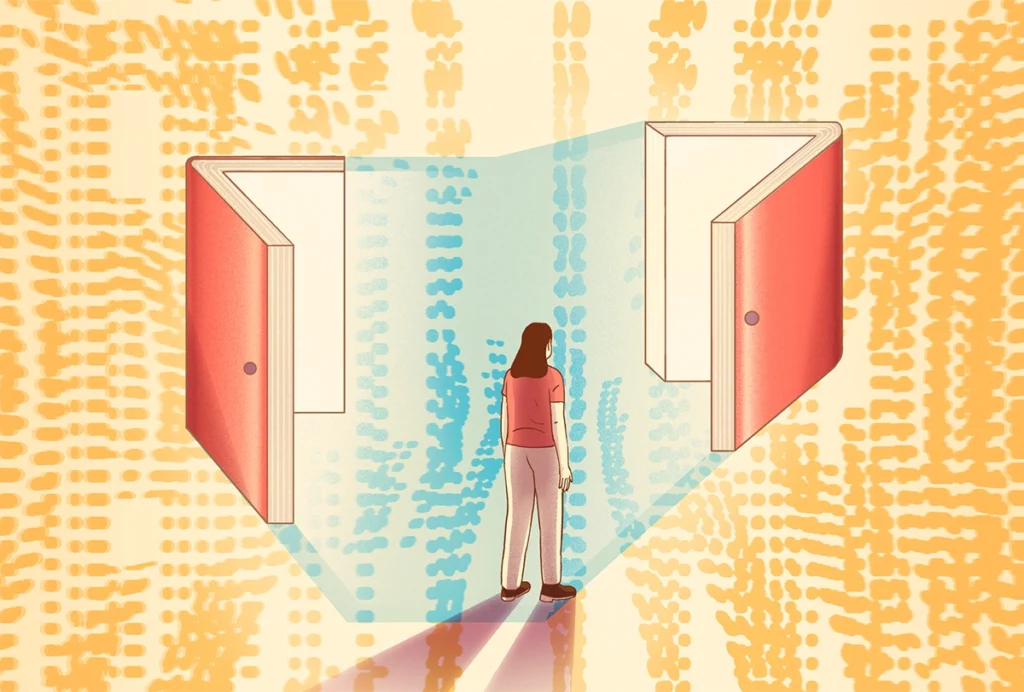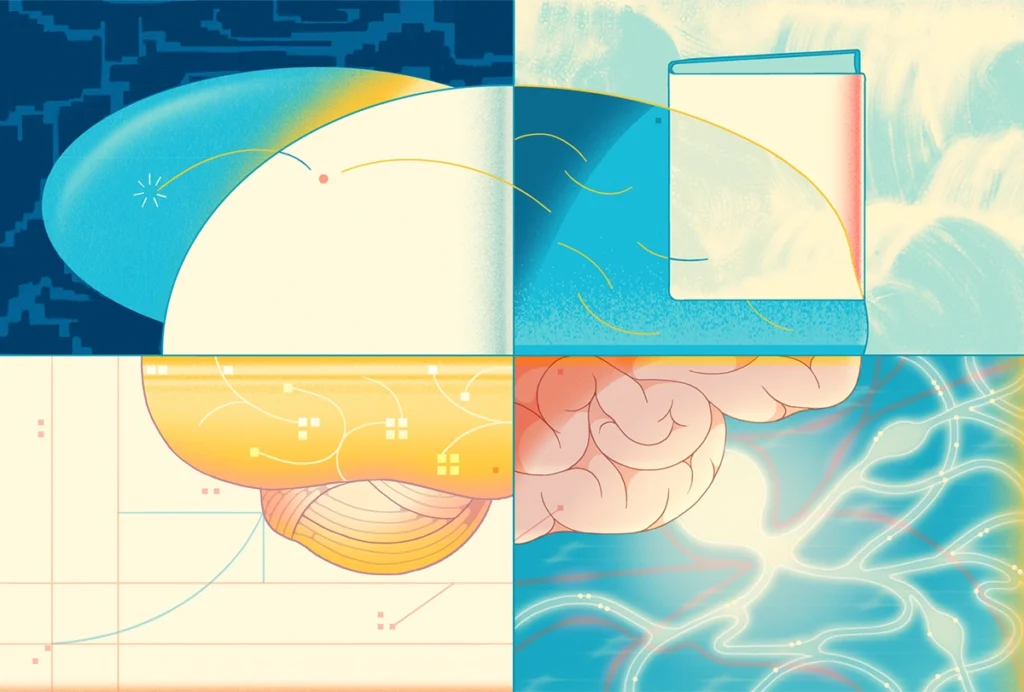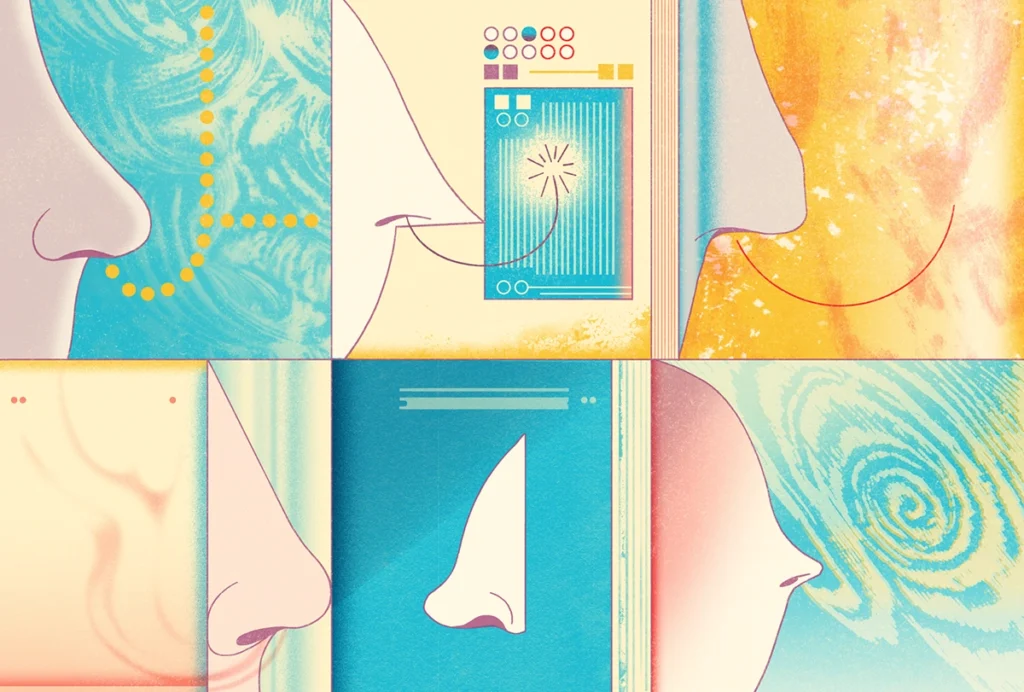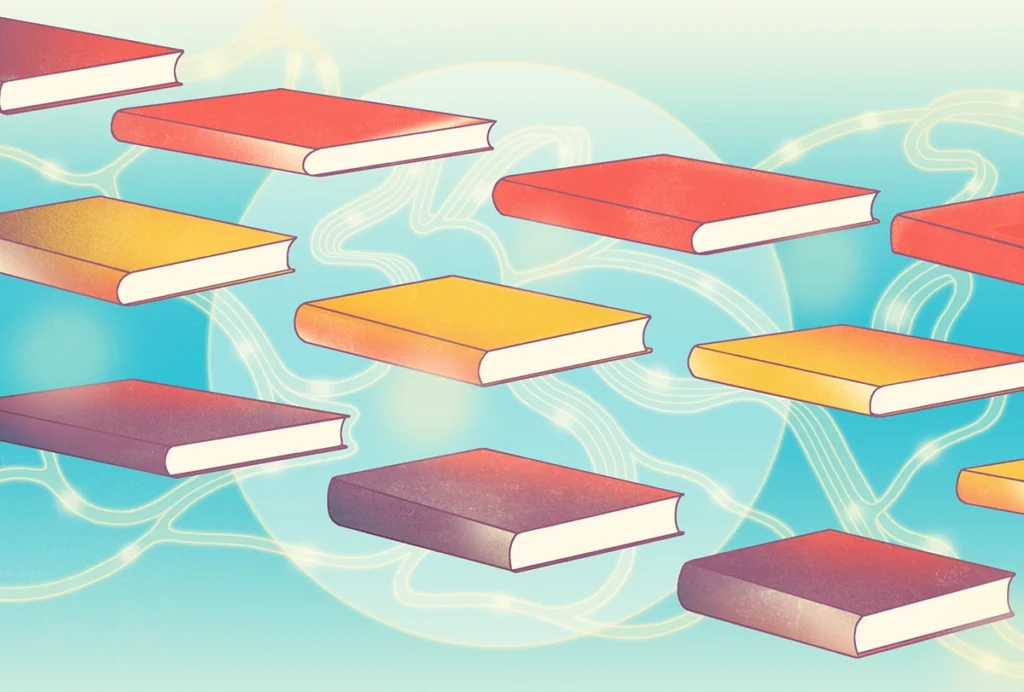Summer reading
Recent articles
From reductionism to dynamical systems: How two books influenced my thinking across 30 years of neuroscience
Nicole Rust describes her career-changing literary journey of joy, free will and the evolution of a field.

From reductionism to dynamical systems: How two books influenced my thinking across 30 years of neuroscience
Nicole Rust describes her career-changing literary journey of joy, free will and the evolution of a field.
How did consciousness evolve? An excerpt from ‘A History of Bodies, Brains, and Minds: The Evolution of Life and Consciousness’
In his new book, to be published in September, neuroscientist Francisco Aboitiz links consciousness back to the earliest days of biological life.

How did consciousness evolve? An excerpt from ‘A History of Bodies, Brains, and Minds: The Evolution of Life and Consciousness’
In his new book, to be published in September, neuroscientist Francisco Aboitiz links consciousness back to the earliest days of biological life.
Consciously smelling—an edited excerpt from ‘Stinking Philosophy! Smell Perception, Cognition, and Consciousness’
In his new book, published earlier this month, Benjamin Young tackles the debates and central questions surrounding olfactory perception, cognition and consciousness.

Consciously smelling—an edited excerpt from ‘Stinking Philosophy! Smell Perception, Cognition, and Consciousness’
In his new book, published earlier this month, Benjamin Young tackles the debates and central questions surrounding olfactory perception, cognition and consciousness.
Six new neuroscience books for fall—plus five titles you may have missed
We highlight the most anticipated neuroscience books for the remainder of 2024 and recap notable releases since last December.

Six new neuroscience books for fall—plus five titles you may have missed
We highlight the most anticipated neuroscience books for the remainder of 2024 and recap notable releases since last December.
Explore more from The Transmitter
Shifting neural code powers speech comprehension
Dynamic coding helps explain how the brain processes multiple features of speech—from the smallest units of sounds to full sentences—simultaneously.

Shifting neural code powers speech comprehension
Dynamic coding helps explain how the brain processes multiple features of speech—from the smallest units of sounds to full sentences—simultaneously.
Astrocytes orchestrate oxytocin’s social effects in mice
The cells amplify oxytocin—and may be responsible for sex differences in social behavior, two preprints find.

Astrocytes orchestrate oxytocin’s social effects in mice
The cells amplify oxytocin—and may be responsible for sex differences in social behavior, two preprints find.
Neuro’s ark: Spying on the secret sensory world of ticks
Carola Städele, a self-proclaimed “tick magnet,” studies the arachnids’ sensory neurobiology—in other words, how these tiny parasites zero in on their next meal.

Neuro’s ark: Spying on the secret sensory world of ticks
Carola Städele, a self-proclaimed “tick magnet,” studies the arachnids’ sensory neurobiology—in other words, how these tiny parasites zero in on their next meal.